“Lo más duro fue cuando mi hijo me preguntó: ‘Papá, ¿por qué Marruecos no nos deja volver?’”
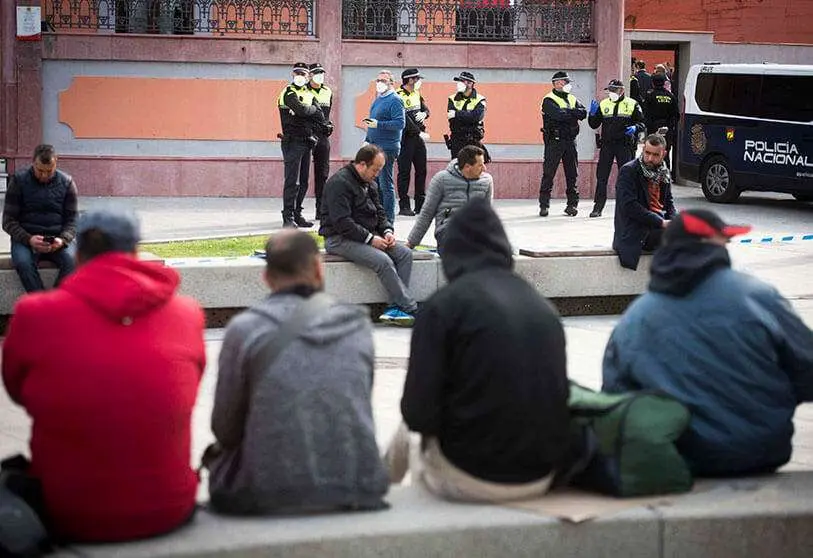
"My feeling right now is that I won't forget this. It will be with me all my life," he told Atalayar Khalid Mouna, a professor at Morocco's Moulay Ismail University in Meknes, who is confined to a small apartment in Paris with his nine-year-old son and his wife. Like him, some 22,000 Moroccan citizens are waiting, mostly in Europe, to be able to return to their country after having been caught on professional, tourist or health trips because of the closure of borders decreed by Rabat to deal with the epidemic by COVID-19. A month and a half long odyssey. According to the Moroccan Minister of Foreign Affairs, Nasser Bourita, the solution to the mess will come "as quickly as possible". For the moment, however, there are no dates for the start of this return operation. "It was very sad to see tourists become something like refugees. Citizens who represent the growing Moroccan middle class are having to beg for food because they can't support themselves in this situation," laments Mouna.
Morocco's handling of the coronavirus crisis has been the subject of praise outside the borders of the Maghreb country, starting with the Spanish authorities. After having suspended flights with Italy on 10 March, Rabat decided on 12 March to close - in a unilateral and unexpected decision - its sea and air connections with Spain. The day after, it did the same with France, as well as with Algeria. Five days later, on 15 March, it announced the definitive closure of its borders. On the 20th of last month, the state of health emergency - with general confinement - came into force, which was extended exactly ten days ago until 20 May. And in those days of confusion, in addition to the problem of combating the pathogen, a real headache began for Morocco (as for many other governments): the repatriation of third-country nationals and the return of its citizens scattered throughout the world.

Up to 80,000 people have been able to return from Morocco to their respective states since the health crisis began. But the fate of the 22,000 Moroccans - according to some sources the figure is considerably higher - and several hundred Moroccan dual nationals - mainly sharing nationality with other EU states such as France, Belgium or the Netherlands - is still up in the air. For some, the absolute closure of borders is justified given the need for a country like Morocco to control the number of infections as much as possible because its health system will not be able to withstand a flood of cases. For others the situation is unreasonable and has got out of hand for the Moroccan authorities.
According to the data provided by the Minister of Foreign Affairs, the Moroccan diplomatic representations have taken charge in terms of accommodation and food of more than 3,800 of these Moroccans. During a meeting of the Committee on Foreign Affairs, National Defence, Islamic Affairs and Moroccans Residing Abroad on 23 April last, which was echoed by Médias 24, Bourita also announced that, in view of the circumstances, the allocation to Moroccans residing abroad would be increased by 20,000 dirhams (the equivalent of 2,000 euros) on a regular basis.
"The Embassy of the Kingdom of Morocco in Madrid and the 12 consulates general in Spain are fully mobilised. The Embassy established a monitoring and communication unit on the 13th to attend to the stranded tourists and provide them with necessary assistance," said the Moroccan Consul for Tarragona, Lerida and Aragon, Saloua Bichri, in a video sent by the diplomat herself to this magazine. "Moroccan citizens in the constituency of this consulate are attended by it, we provide accommodation, help with food and communicate and provide health care, including medicines," says the diplomat, who praises the patience and stresses the gratitude of her compatriots.

At first the issue went unnoticed in the Moroccan media. Little by little, as the days went by, the fate of Moroccans blocked abroad gained space in public debate. "My opinion is that Morocco underestimated the issue. It managed other aspects of the epidemic very well, but forgot about the Moroccans abroad. It should have started repatriating people in particularly vulnerable situations earlier, but the numbers kept increasing," laments Mouna from the French capital, where she arrived to attend a university conference. She admits that, at least financially, her situation is less difficult than that of other Moroccans, since friends lent her the apartment where she is staying with her family. "It's very sad to see tourists as if they were refugees," laments Atalayar, a Moroccan citizen trapped in Paris.
More and more voices are lamenting the poor communication policy of the Moroccan authorities, who delegated the management of the problem to local diplomatic agents in the first weeks. "I will not forget how one of our ministers asked us to be patient and make the sacrifice. I would like to see them in this situation," Mouna told Atalayar by telephone from Paris. But social pressure on the problem-parallel to the problem of the Moroccan dual nationals who have not yet been able to return to their countries of residence either-has been growing, and last Friday, April 23, the Moroccan foreign minister finally had to give public explanations in a parliamentary committee. "The return is already prepared", but it must be done in an orderly manner so as not to affect resources which are limited, said Bourita, in declarations collected by the digital Hespress.
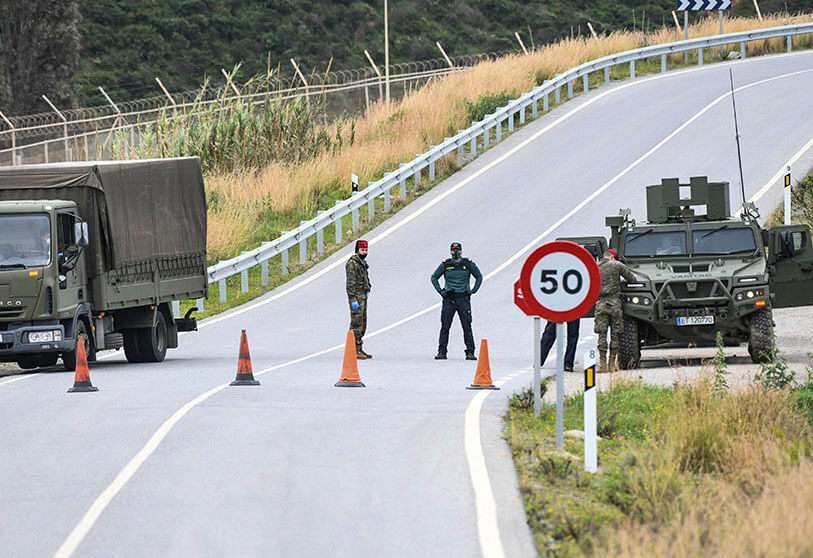
For now, Moroccan consulates and embassies abroad identify stranded citizens, with their full contact details, including passport and national card number. As echoed by Moroccan media such as Maroc Hebdo, the issue has sparked friction between members of different parties in the national parliament. The aforementioned local weekly newspaper reported the complaint of the deputy and chairman of the parliamentary group of the nationalist Istiqlal party, Noureddine Mediane, who accused the government of not having an agenda for repatriation and of having ignored the issue among its priorities.
"We have less and less money left. They can't send us any from Morocco. We're spending Ramadan with a friend in a flat five miles from Algeciras. We miss our families. We're running out of food and it's cold in this house. It's all very sad," Aziz Boumesmar tells this publication in despair. A truck driver for more than 25 years, the announcement of the closure of the borders caught him in France with his vehicle. Despite having travelled at full speed to the south of Spain in the hope of being able to cross the Strait, Algeciras was the end of the line for this 50-year-old Moroccan. "At the Moroccan Consulate here they tell us to wait, that they can't do anything for now. But they are helping many Moroccans with accommodation and food," he tells Atalayar Aziz, who has been stranded in Cadiz for more than 40 days. "Spain is a good country, with good people, they are helping us with food. But this situation is rare, we have work and papers in order, we really don't need it," he says.
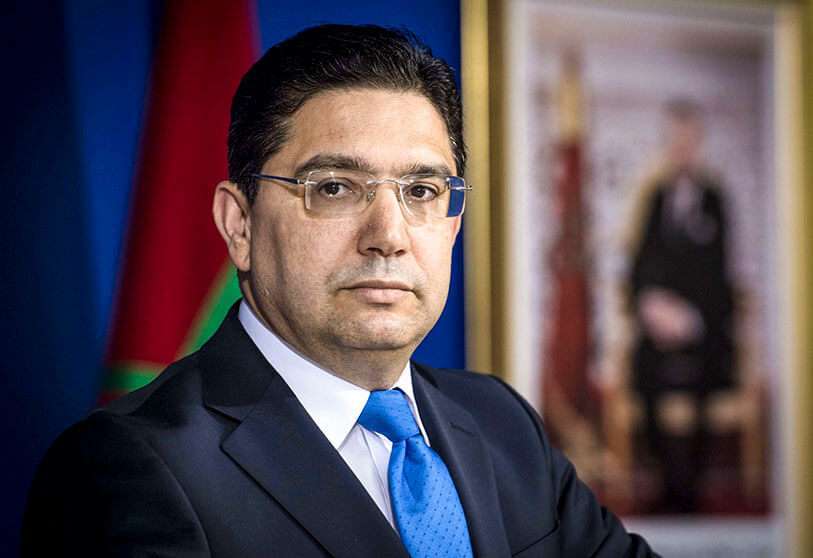
"We've been caught with our backs against the wall. I work between Ceuta and Tangier and my wife, who is pregnant, and I came to see a gynaecologist who is a colleague of mine in Granada, and we have been locked in," Abdel El Merroun, owner of a maxillofacial clinic in the old international city, told this publication. In his case they had arrived a week before the border was closed. "We are paying for our accommodation in an apartment out of our own pockets. I could go to Ceuta and continue working there, but my wife has to go back to Tangier in her situation. But we don't have a return date. We hope this will be sorted out soon," he tells Atalayar. Also stranded in Spain, in this case in Alicante, is Issam Bahous, a computer engineer by profession. "He had come on a business trip when we heard about the border closure. We are not in the situation of other compatriots: in my case the company pays for my stay and we are teleworking," he explains to Atalayar Bahous, who works for a Spanish company based in Morocco.
Young Moroccans contacted by this magazine who were studying far from home when Rabat decreed the closure of its borders are having more luck. Their cases are not counted among the aforementioned 20,000 Moroccans abroad, as they are still within the period of their respective academic stays. According to some local sources, there may be more than 80,000 Moroccan students around the world during this coronavirus crisis. "I came on one of the last flights from Morocco to South Korea and the second week of my stay the cases in this country began to shoot up. But the authorities here have done very well and the situation is now good," admits Atalayar from Seoul Meryem Razin, a political science student at Hanyang University thanks to an exchange programme. "I went to the Moroccan Embassy last week and they were very receptive. They told me that they will extend my visa if the borders are not opened. But they admitted that they don't know when it will happen. For the time being, I am staying here, where there is no confinement," says the young woman born in Marrakech.
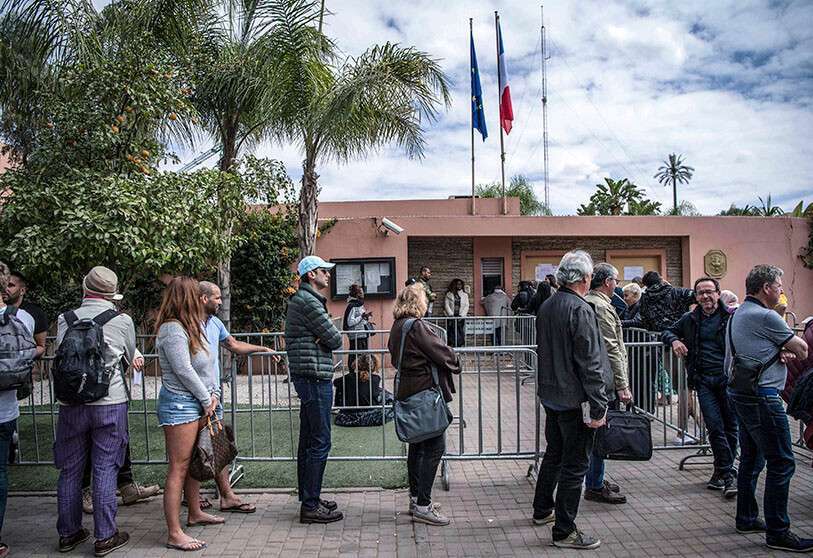
"I haven't had any answer from the authorities in my country about when we will be able to return. They told me that there is a list of Moroccans living in Belgium and they signed me up to notify me," she told Atalayar Fayrouz Yousfi, who lived in Ghent until June and who is studying a doctoral program at the university. The young woman explains that in her case she is covered by a scholarship and that, at least until next month, she has a residence permit in Belgium.
A similar case is that of El Mehdi Boufaddi, a young political science and international relations student at the Swedish University of Malmo and a native of the town of Kenitra. And a concern probably similar to that of Meryem and Fayrouz. "I want to return to my country at the end of the course. Here in Sweden cases are increasing every week because the authorities have not managed the situation well. But I don't know what will happen in June. Luckily the university where I am doing the exchange has already informed me that they will pay for my stay until I can return to my country," confesses El Mehdi.
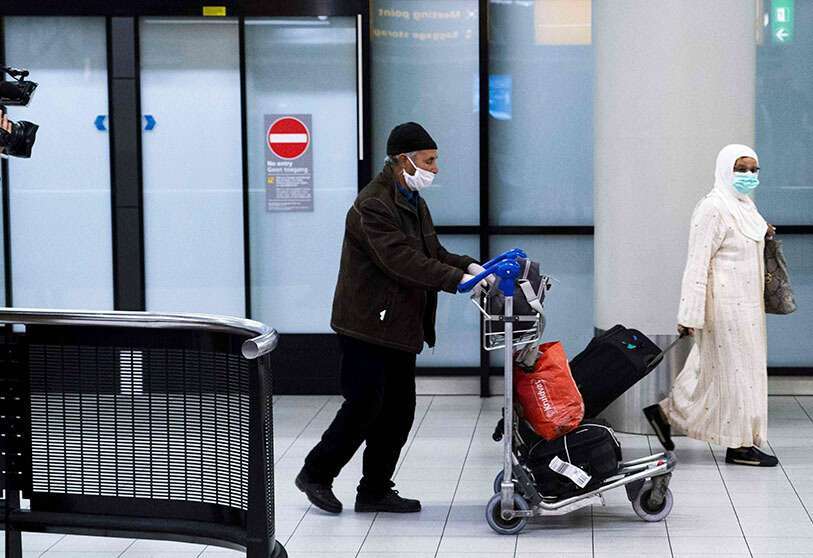
In addition to the suffering of the stranded people, there is a drama that is more painful because it is irreparable: that of the 341 people, according to data from the Foreign Ministry, who have died outside of Morocco since the beginning of the COVID-19 pandemic. An added torment for their families and loved ones. In recent weeks, several human rights groups have begun working in parallel with the Moroccan authorities to help the most vulnerable. And, finally, one of the big questions behind the delay in the process is how the administrations of the neighbouring country will organise the logistics to quarantine more than 20,000 people once they manage to return home.
From Algeciras to Seoul via Paris, Brussels, Madrid or The Hague. But also through Ceuta and Melilla, where around 1,200 Moroccan citizens are waiting to cross the line to reach a country that now seems more distant than ever. On Tuesday, Spanish security forces revealed that 14 people had been prevented from swimming from Ceuta to Morocco and that a dozen had managed to do so in the last month and a half. A way back, the paradoxes of this crisis, following the route usually taken by undocumented immigrants trying to reach the autonomous city.
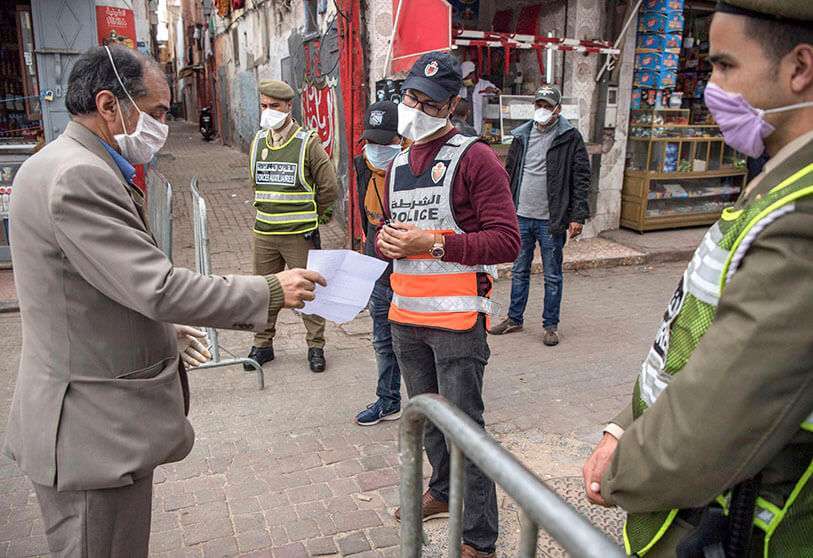
Testimonies that are repeated and a growing desperation. "Morocco has closed the door on us. Can't the minister help us?", asks Aziz from Algeciras. "The metaphor that best represents the pain we experienced was that of the plane taking off empty from France to Morocco to pick up French citizens and bring them back. But the hardest thing of all was when my 8-year-old son said to me: 'Dad, why won't Morocco let us come back?' You're speechless, you don't know what to say. You end up thinking we've been deprived of our citizenship. We've lost our rights," the Meknes university professor told this magazine.








